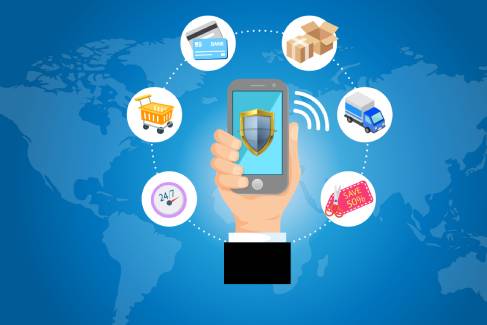3rd Thought Cloud: Tech In Health
The healthcare industry is being transformed by technology. Thinking about it, we have come a very far way from earlier years. Owing it all to the researchers - who are constantly looking for methods to make the system better. Now in this entry, I will be sharing my opinions regarding the provided video materials and dwelling more on the impact of technology in healthcare.
💭 My Impression on Videos Provided
Before starting this blog, I watched a number of films about nursing informatics including those from TEDx Talks (2014) and University of Maryland School of Nursing (2017). In the video uploaded in TEDx Talks (2014) titled Next steps in health & medicine -- where can technology take us?, the speaker shows where technology can take us in health and medicine. He discusses numerous gadgets and devices that will revolutionize health monitoring and expand our access to private medical care. One particular technology that struck me is the development of Sensors. Its application in day-to-day lives became much more unimaginable as it is embedded in various things around us such as clothes, watches, cars, and others alike. The common device that everyone can think of when sensors come into play would be the Smartwatches – which has the capacity to track footsteps, heart rate, sleep patterns, and many more. However, sensors have advanced so that they can also be integrated into an infant’s diaper like the Huggies Tweet Pee – which can post a Tweet indicating the diaper is full. Thinking of its application in today’s time, I can’t help but wonder how far it can be in the near future. On the other, in the video uploaded by the University of Maryland School of Nursing (2017) titled Nursing Informatics: Connecting Patient Care and Technology, the speaker stresses that there are other possible careers for nurses. This made me realize that nursing practice is not limited to bedside care as one can also take up the role of nursing informatics. Through this, nursing professionals can aid by assisting with problem-solving and by introducing new jargon that clinical experts can use to comprehend the adoption of new systems.
💭 "Sick Care" or "Health Care"
From the way that I see it, the foundation of our healthcare system is a reactive strategy for illness. Instead of proactively addressing people's entire health and well-being, we wait until they are ill before treating them and concentrating on the symptoms and treatment of diseases. This practice commonly encompasses the term "sick care" - although it is a great practice to address arising symptoms of the disease, it also is placing an unneeded burden on our healthcare system. By prioritizing sick care, we frequently treat illnesses that have developed to a critical degree rather than managing them in the early stages or even preventing them.
With our recent battle with the COVID pandemic, I have observed that "sick care" was practiced first. The surge of people getting infected with the virus has made healthcare professionals immediately treat the complications rather than promoting prevention and immunity to the virus. This overall has taken its toll on the healthcare workers and some of them got tired and even contracted and developed the said virus. If only they had access to wide resources and were supported by the government then "sick care" would eventually shift to "health care".
💭 Tech Convergence and its Rise on Healthcare
As defined by TechTarget, technological convergence is a term that describes bringing previously unrelated technologies together, often in a single device. Based on this definition, I would strongly be assuming that tech convergence occurred a long time ago and is continuously occurring today. An example of tech convergence would be the development and widespread adoption of smartphones. Smartphones have combined the functions provided in single-purpose devices such as telephones, watches, cameras, and GPS. Looking at the healthcare setting, an example of tech convergence that was discussed in the video uploaded by TEDx Talks (2014), titled Next steps in health & medicine -- where can technology take us?, would be the development of Smartwatches which has the ability track footsteps, heart rate, sleep patterns, and many more all while being worn and functions as a normal watch. Indeed, this made me realize how the technologies today can evolve and be part of tomorrow's future.
💭 Old VS New: Are We In or Out?
Nowadays, we utilize a wide range of technology in our daily lives including email, cell phones, the internet, television, pagers, and computers. For one, technology connected the worlds like never before. Before, letters were one of the few forms of communication available. At present days, we now have a wide range of communication tools at our disposal that enables us to stay in touch with society at all times. In a nutshell, older technology allowed us to be more self-sufficient and independent. We may now interact with the world digitally and stay up to date in real-time thanks to new technology.
For everyone, it has been a fantastic educational catapult. Our ability to network around the world has sped up our information. However, relying only on technology has drawbacks because we are unable to repair it easily when it malfunctions. Our lives are controlled by electric towers, and if they go out, everything digital and communication-related will as well. With that being said, as we look into the greater aspect, the purpose of technology from before and to present days remains to be the same - which is to help ease the daily lives of many people.
💭 Interdisciplinary Approach as the Key to Solving 21st-Century Problems
As I ponder on this question, I can't help but envision a world where technologies function at their optimal level and people will have an ease of living. With an interdisciplinary approach in place, it is like wearing multiple thinking caps. The idea of combining several disciplines and different fields of expertise will result in redefining problems outside of normal boundaries and reaching solutions based on a new understanding of complex situations. If we are to look into healthcare, when treating a patient's injury or disease, a team of healthcare experts collaborates to maximize the likelihood of successful treatment outcomes. Although the healthcare team consists of numerous people under different specialties, one thing they all must have in common is the willingness to work collaboratively with other practitioners toward the optimum health and well-being of the patient. Indeed, "No man is an island" is a wonderful reminder that we are not alone and that we need one another to survive.
References:
Bella Vista Health Center (2022, July 30) Benefits of Interdisciplinary Teams in Healthcare. Retrieved from https://www.bellavistahealth.com/blog/interdisciplinary-teams-in-healthcare
Khanz, G. (n.d.) Definition: Technological Convergence. TechTarget. Retrieved from https://www.techtarget.com/searchdatacenter/definition/technological-convergence
TEDx Talks (2014, October 2) Next steps in health & medicine -- where can technology take us? [Video]. Youtube. https://www.youtube.com/watch?v=zrW3-yzWt5Q
University of Maryland School of Nursing. Nursing Informatics: Connecting Patient Care and Technology [Video]. Youtube. https://www.youtube.com/watch?v=N5Lsf7RZMTA





Comments
Post a Comment